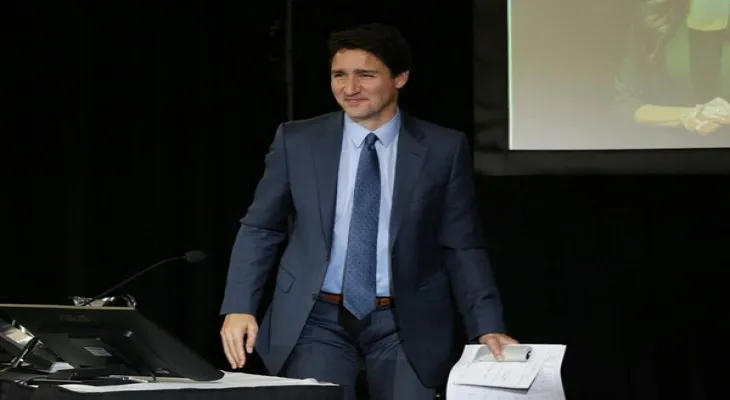Search here
Newspaper
Search here

Arab Canada News
News

Published: November 28, 2022
The Canadian government reveals its new economic and diplomatic strategy for the Asia-Pacific region, following a tour by Prime Minister Justin Trudeau in the region.
Canada revealed yesterday, Sunday, its new economic and diplomatic strategy for the Asia-Pacific region, allocating 2.3 billion Canadian dollars (1.7 billion US dollars) over the next five years for the plan aimed at mitigating the "risks" posed by China.
Prime Minister Justin Trudeau's government based its strategy on five main pillars: enhancing peace and security, notably by sending a warship to the region, boosting trade and investment, supporting "international aid for women" projects, funding sustainable infrastructure, and increasing Canadian diplomatic presence.
Canadian Foreign Minister Mélanie Joly said in a statement: "The future of the Indo-Pacific region is our future, and we have a role to play in shaping it. To this end, we must be a true and reliable partner" to Western allies.
She emphasized that "this strategy sends a clear message: Canada is present in the region and is here to stay." This roadmap aims to "deepen Canada’s commitment to the Indo-Pacific region over the next ten years," according to the statement.
Canada unveiled this strategy after a tour of the region by Trudeau and Joly, who both participated in several conferences: the Association of Southeast Asian Nations (ASEAN) summit in Phnom Penh, Cambodia, the Group of Twenty summit in Bali, Indonesia, and the Asia-Pacific Economic Cooperation (APEC) forum in Bangkok.
In an interview with the French-speaking daily "La Presse," coinciding with the launch of the new policy, Joly said the message was specifically directed at Beijing, with which Ottawa’s relations are tense.
Joly told the newspaper: "There is a fundamental problem in the fact that China does not currently respect international norms, and tries to change them or interpret them for its own benefit."
The minister added that the government will not go so far as to advise Canadian companies not to do business in China, but its role is to "explain the risks."
She continued: "I say that there are geopolitical risks in doing business in China."
Chinese President Xi Jinping rebuked the Canadian Prime Minister in front of cameras during the Group of Twenty summit, in an unusual public confrontation likely to complicate the already strained relations between the two countries.
A video recorded by journalists during the G20 summit hosted in Bali showed Xi scolding Trudeau after details of talks between the two leaders were leaked to the media.
On Tuesday, Trudeau raised with Xi the issue of "Chinese interference" in the affairs of Canadian citizens, after Ottawa recently accused Beijing of meddling in its democratic and judicial systems.
Relations between the two countries reached their lowest point when Canadian authorities arrested Huawei's executive director, Meng Wanzhou, in 2018, on charges of violating US sanctions.
Ottawa imposed restrictions on investments by three Chinese companies in lithium mining in Canada.
A spokesperson for the Chinese Foreign Ministry said that China strongly opposes Canadian measures that "disrupt and hinder normal business cooperation between Chinese and Canadian companies under the pretext of protecting national security."
Comments